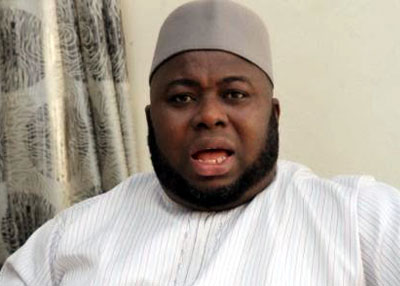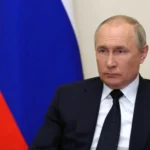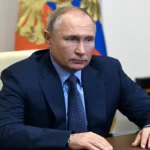A major feature of a modern state is, among other things, having the ability to effectively take charge of its internal affairs, including internal security, maintaining law, order and, above all, protecting its territorial integrity and sovereignty.
In their latest ranking, The Global Firepower, a US-based think tank, responsible for rating the military forces of all countries on the planet, ranked the Nigerian Military, 36th out of 142 in the world, and 4th in Africa.
With about 230,000 uniformed personnel, the Nigerian military, is among the largest combat force on the continent and had engaged in numerous UN-backed peacekeeping operations in and outside the continent.
In order to complement the role of the military in safeguarding the country, the Nigeria Police Force, founded in 1930, has about 350,000 personnel in 2023.
- Disciplinary mechanism in the bar, bench has broken down — Aikpokpo Martins
- Proceedings in Seun Kuti’s assault case stalled
This is in addition to the ancillary activities of paramilitary outfits like, Civil Defense, Immigration, Customs and correctional officers. In the same vein, numerous covert and intelligence outfits like the DSS, NIA, and other specialised units abound, all in a bid to secure the country.
The vastness of the country, led to an incredible rise in the number of ungoverned spaces across the length and breadth of the nation.
Regardless of the intensity and multidimensional challenges, Nigeria should be wary of engaging non-state actors, or hiring mercenaries or private military companies to fight its war.
Some weeks back, Alhaji Mujahid Asari Dokubo, the self-acclaimed militant leader, and head of the Niger Delta Volunteer Force (NDVF), stunned Nigerians when he revealed that his men drove armed bandits away, and restored sanity at the Abuja-Kaduna expressway.
Speaking to newsmen when he met with President Bola Ahmed Tinubu, he said: “There is a full-scale war going on and the blackmail of the Nigerian state by the Nigerian military is shameful. They said they do not have enough armament and people listened to this false narrative. They are lying. They are liars. I repeat they are liars because I am a participant.
“I am a participant in this war. I fight on the side of the government of the Nigerian state in Plateau, Niger, Anambra, Imo, Abia and Rivers. And in Abuja today, you are travelling to Kaduna on this road. It is not the army that makes it possible for you to travel to Abuja or travel to Kaduna, and vice versa. It is my men, employed by the government of the Nigerian state, stationed in Niger.
“Today, you travel to Baga, you go to Shiroro, you go to Wase. We have lost so many men and in all these engagements, we don’t even have one per cent of the armament deployed by the Nigerian military, he said.”
The Asari revelation came to many as a shock, and raised some fundamental questions.
First, when were he and his men recruited, and what, if any, were the terms and conditions attached. Second, has the military, despite humongous budgetary become incapable of defending the country?
Whatever the case, the Nigerian government should be wary of perilous mercenaries, and other private military companies and contractors.
Activities of private military companies and other self-styled mercenaries can be counterproductive. A big lesson is the recent Wagner mutiny in Russia. It shows just how flakey and unpredictable they can be.
Take for instance, the owner of the Wagner group, Yevgeny Prigozhin. He owes everything he is to Vladimir Putin. As a chef in Moscow, his Concord catering firm, was hired to provide catering services to the Kremlin, thereby making him blend freely with the high and mighty within the Russian oligarchs and elite. He won Putin’s confidence to the point he was integrated into the inner circle of power brokers, thereby building international networks. The creation of a private military company, Wagner, and the group’s fluidity and heroic feats during the Crimean crisis in 2014, between Russia and Ukraine, was the high point of Prigozhin’s relationship with Putin.
He became the de facto foreign policy henchman and international strategist for the Russian leader. Their friendship transcends mere running errands for Putin. In 2016 and 2020, during the US elections, Mr Prigozhin coordinated an intricate network of internet trolls, known as the Russian Troll Farms to influence elections across nations (including the US) perceived to be hostile to Russia, and her interest.
With such closeness, he was considered a reliable Putin’s ally. Prigozhin had a blank mandate to go international with his Wagner group. His presence in some African countries like Mali, Central African Republic, Zimbabwe, Madagascar, Mozambique, Libya and lately Sudan, just goes to show how formidable their operations are, and the pattern and circle of conflicts they respond to, in return for cash and gold mines.
Buoyed by such a remarkable and exceptional feat, Prigozhin decided to take on a bigger pie – the Russian Ministry of Defence, and other top-ranking members of the country’s security. His mutiny, last Saturday, remains a stark reminder and warning to President Bola Ahmed Tinubu to be wary of elements clothed in the fabric of volunteers, or private military companies, such as Asari’s. If Prigozhin, could turn on his benefactor, Putin, then it goes to show how careful one should be, especially when dining with the devil.
Nigeria needs to increase the size of its security personnel, no doubt. Monies and other logistics expended on signing private military contractors to take charge of our collective security should be used in recruiting thousands of unemployed youths, in the country.
During his campaigns, the president promised to do just that. And so far, he has proved to walk the talk. With the rejig and tweaking of the country’s service chiefs, and the appointment of Nuhu Ribadu, as NSA, it looks like the right template is set, to tame the rise in criminality across the country.
The new administration must wage a brutal campaign on security malfeasance. Once they can have the political will to do that, the security challenge in the country would have been solved by half. The other half will be based on kinetic military action. The circle of corruption, especially in the security sector must stop.
Mohammed is with the Department of Political Science and International Studies, Ahmadu Bello University, Zaria

 Join Daily Trust WhatsApp Community For Quick Access To News and Happenings Around You.
Join Daily Trust WhatsApp Community For Quick Access To News and Happenings Around You.

